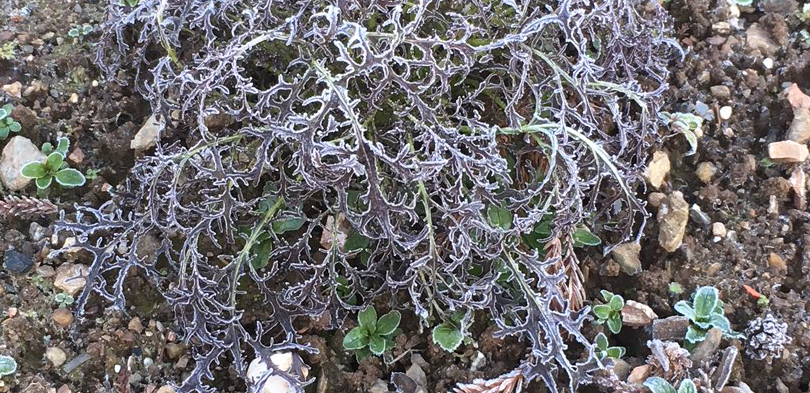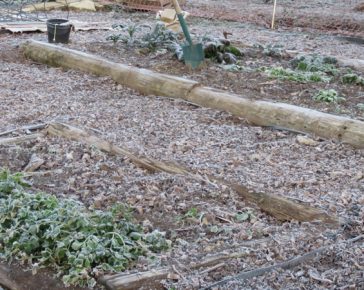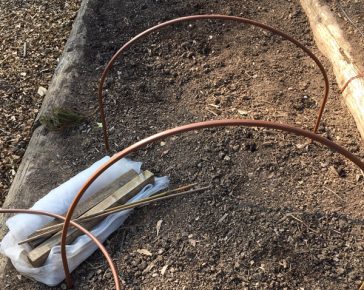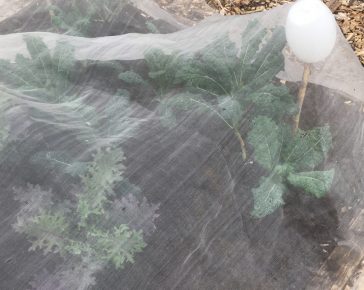As we come into colder weather, here’s a quick guide to looking after any winter veg plants (and herbs/fruit) that you’ve got growing.
Veggies that will benefit from the cold:
Frosty nights and cold spells are great for sprouts, cabbages, leeks and parsnips and swede, so don’t panic about these veggies too much – they’ll simply sweeten up as starch is converted to sugars by the cold.
Veggies to harvest asap:
It’s best to harvest any beetroot, carrots, fennel and radishes before it turns much colder. We find they tend to rot quickly after a harsh frost. Others should be fine left to stand in the ground, including winter salads, kale, cabbages, broccoli, turnip/swede, parsnips, celeriac and leeks.
Which plants are most vulnerable?
Winter lettuces, winter purslane and corn salad will benefit from being covered by fleece if being grown outdoors. If the weather turns very harsh, cover spinach/chard as well. These are probably the most vulnerable of the veggie plants that might be growing at the moment (apart from those that you hopefully plan to harvest from the list above!)
How can I protect the vulnerable veg plants?
Simply laying a sheet of horticultural fleece over the top of plants will help, and cloches or a cloche tunnel will really help to protect your plants. You can make a cloche tunnel by propping clear polythene up with hoops made from hosepipe (or buy hoops), see below.
What about herbs?
Some of the annual herbs or more tender perennials will begin to struggle as the weather turns colder (lemon verbena, tarragon, basil, coriander and so on.) If they are in pots, you could move them undercover – a greenhouse or porch, for example, but they will fade away fast with the colder nights now. Other perennials will die back, like chives, marjoram and oregano. Over the winter, prune out the woody growth to make space for fresh growth in spring. Tougher evergreens, like sage, rosemary and thyme should be okay through the winter.
Fruit
Most fruit plants will tolerate the cold weather, but it is well worth mulching them to protect roots and keep them well nourished. They will lose their leaves and produce fresh growth next spring.
Follow the advice above, and hopefully you shouldn’t need to worry too much about your crops over the colder weather.




